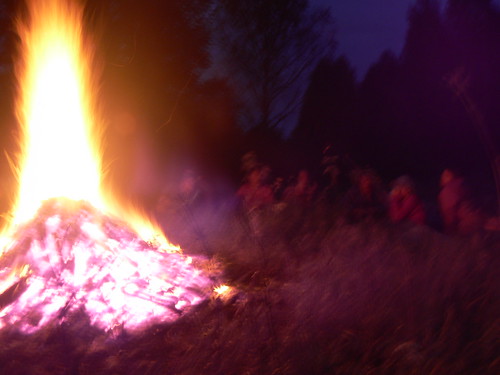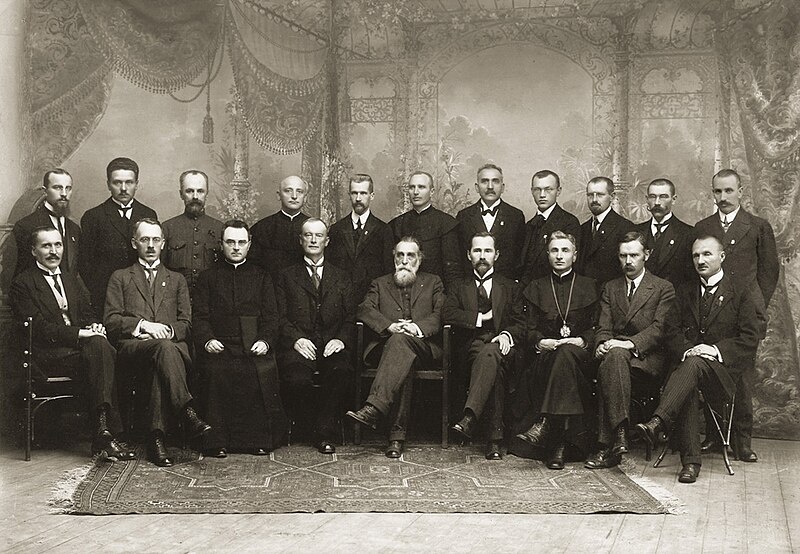The Independence of Lithuania is a complex affair. The Wikipedia article on its independence sheds some light:
After the Russian Revolution in 1917, Germany conceived the geopolitical strategy of Mitteleuropa – a regional network of puppet states that would serve as a buffer zone – and agreed to allow the Vilnius Conference, hoping that it would proclaim that the Lithuanian nation wanted to detach itself from Russia and establish a closer relationship with Germany. However, this strategy backfired; the conference, held from September 18–22 of 1917, adopted a resolution that an independent Lithuania should be established and that a closer relationship with Germany would be conditional on Germany's formal recognition of the new state.During WWII, Lithuania fell first into the hands of Soviet Russia, then to Nazi Germany, then back to Soviet Russia. It remained part of the USSR until the 90s. From the main wikipedia article on Lithuania:
Forty-six years of Soviet occupation ended with the advent of perestroika and glasnost in the late 1980s. Lithuania, led by Sąjūdis, an anti-communist and anti-Soviet independence movement, proclaimed its renewed independence on March 11, 1990. Lithuania was the first Soviet republic to do so, though Soviet forces unsuccessfully tried to suppress this secession. The Red Army attacked the Vilnius TV Tower on the night of January 13, 1991, an act that resulted in the death of 13 Lithuanian civilians. The last Red Army troops left Lithuania on August 31, 1993 — even earlier than they departed from East Germany.Nowadays Lithuania is part of the EU. The Lithuanian tourist board site blows the country's trumpet thus (all lapses in English grammar are the tourist board's own):
New and undiscovered destination, original and fancy place to go. If you can't find other reasons, go just to satisfy your curiosity!Friendly and charming people, speaking many foreign languages. For the first moment the Baltic people may seem reserved and formal, but soon you will find them to be very warm and hospitable!
Traditions still alive! Come to the Baltics during the Great Midsummer Eve celebration and you will see how the Baltic people celebrate! Each year the night of June 23 is very special in Baltics, because the cities empty out, most everyone decorates their cars, bicycles, horses etc. (even the yellow public busses are decorated) with leaves and flowers and goes out into the countryside to drink locally brewed beer, eat special Midsummer's cheese, build campfires, wave wreath of oak leaves and flowers, and sing and dance until the morning light
This does honestly sound like great fun, and kind of makes me want to visit Lithuania this summer. The practice is rooted firmly in a Pagan tradition and a firmly Lithuanian Mythology (about which you can read a little bit here)

Bonfires such as the one pictured above are lit, and young couples jump over them. These couples, too, go into the woods to find a mythical flowering fern. Luckily for the couples, the mythical flowering fern remains an intangible myth, and they can get down to it.
It looks like you can get cheap flights to Lithuania through Ryanair and BMI, if you're interested.
Quote time!
"The kindly word that falls today may bear its fruit tomorrow"





No comments:
Post a Comment